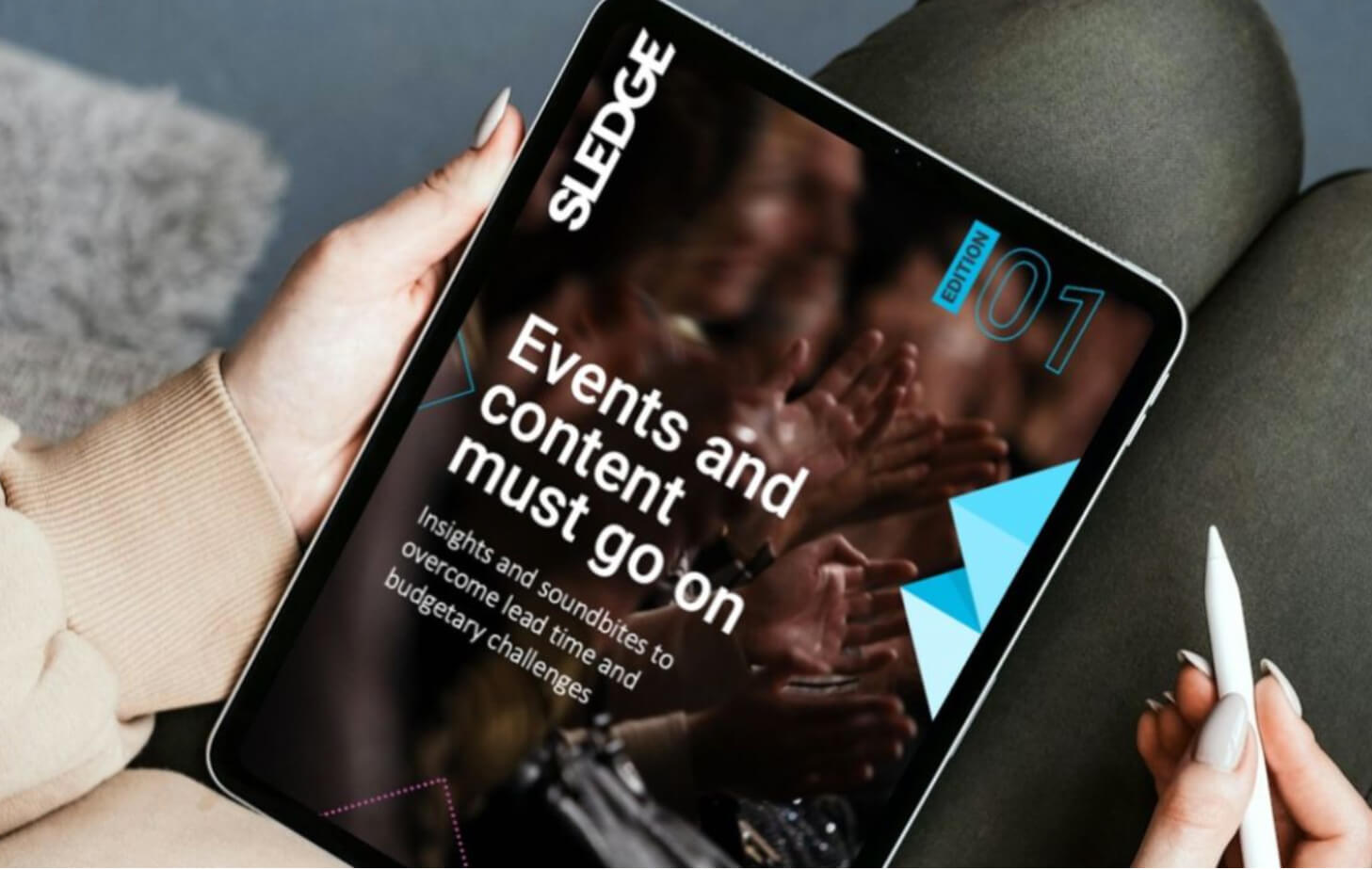Events agency Sledge has launched a new report, Events And Content Must Go On: Insights and Soundbites to Overcome Lead Time and Budgetary Challenges and it is designed to arm industry professionals to navigate these current times. The report reveals first-hand lead time figures, based on Sledge’s own projects and analyses the factors impacting them. The report also offers solutions and concludes with an exploration of the future of lead times.
Reduced lead times are a fact, according to the report, and the agency says that the practice is not unique to a particular sector or region but, rather, universal.
For UK-based events, Sledge says three months was the average lead time from briefing to delivery for larger scale conferences between May 2023 and May 2024.
Meanwhile, for smaller-scale projects, such as activations within wider events and exhibitions, average lead times were four to six weeks over the same period.
There are several factors that have paved the way for this trend. Some are unavoidable in our current climate, meanwhile others can be managed and overcome.
Recession and resources
The rising cost of living is seeing procurement delay on budget sign offs, which has a flow on effect to organisations’ marketing and event teams, and in turn, their suppliers.
The report found that the period between briefing and project delivery can be sufficient, yet that timeline is significantly compressed when compared to the final sign off and the event or shoot day.
With many companies restructuring, newly formed or smaller teams are struggling to grapple with their roles at speed.
Ultimately, they do not have the time or resources to plan ahead and maximise every marketing opportunity – or they aim to take them all on, which leads to overwhelm and burn out.
This unease in the air is causing teams to increasingly plan on a monthly or quarterly basis as they await their budget approvals, rather than a minimum annual one, which inevitably leads to a reactive rather than proactive approach.
Internal and external perceptions
In some instances, the Sledge report finds, it is also taking longer for executives to give marketing efforts the green light, due to the potential sensitivities surrounding them, at a time when redundancies are being made, and/or times are tough for many.
Confirming and contracting the most suitable supplier and freelance partners for the job can be challenging at the best of times, and this is only amplified when they don’t receive ample notice. This can mean preferred suppliers are unavailable, which can impact the overall quality of a project.
Rushed decision making
Multiple sign offs are typically required across all aspects of a project, which can take time. This puts pressure on internal teams, and results in conflicting feedback, which slows progress further.
Sledge says its teams are being briefed slightly earlier than in 2023, but that the nature of the world right now means that this may very well change.
The report naturally highlights the value of looking to specialist agencies for support. Beginning project conversations early on, even if all deliverables are yet to be fully defined, enables an agnecy to develop the strategy and creative when clients’ schedules are full up, the report stresses.
It also highlights the value of purposeful partnerships. By working together on an ongoing rather than ‘churn and burn’ or one-off basis, agencies are able to gain a deep understanding of an organisation’s goals, policies, people and brand, ensuring all aspects of a project reflect the core DNA of their business.
The global events industry projected to grow at a compound annual growth rate of 6.4% between 2023 and 2032, the report notes and Sledge MD Sarah Yeats, tells CN: “Following both our own experiences and the wider trends we’ve witnessed across the marketing and event industries on a global scale, we felt compelled to put pen to paper and share these with the sector, in a bid to help us all move forward.”
She adds: “While our findings indeed highlight that lead times have reduced across events and content both in the US and the UK, it is positive to see that looking ahead, we have seen more recent briefs come in with slightly longer lead times.
“The key to managing these fluctuating project timelines, however, is to remain agile.and adaptable, and remind our clients that as the event experts, we’re here to add value and support them every step of the way.”
Those interested in accessing a copy of the Sledge report can do so here.















